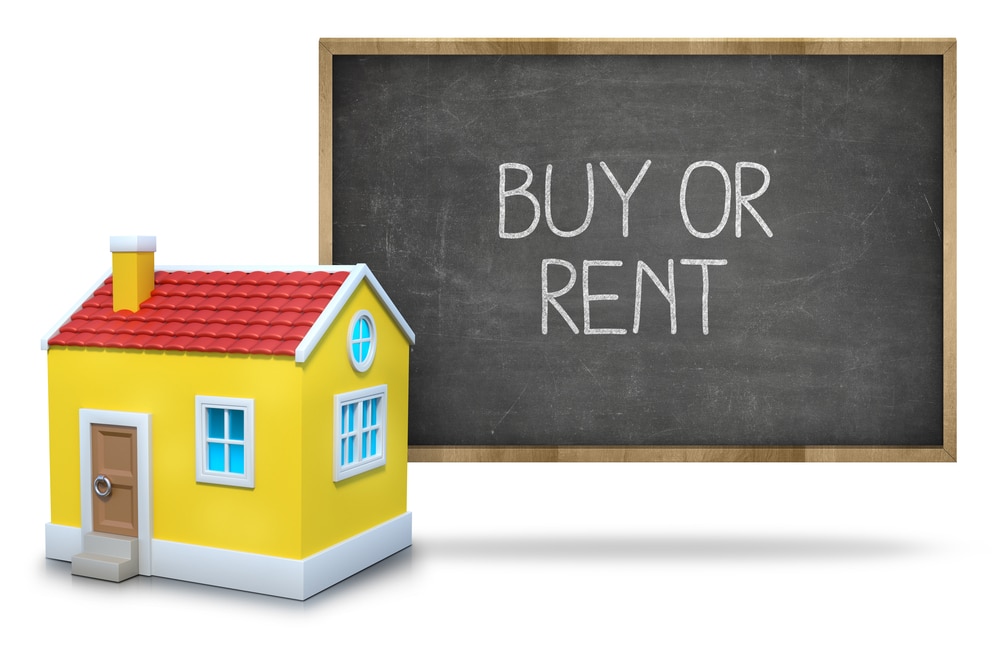
One of the trickiest dilemmas most people find themselves in is the debate on whether to buy or rent a house. The truth is that there has never been a single straightforward answer to this debate.
But, perhaps the single point of convergence in the discussion is the importance of location, regardless of whether you are buying or renting. Everybody wants to live in a great location. However, that, too, has significant financial and other implications.
The biggest problem in either position is the financial freedom (or lack thereof) that comes with either choice. The bottom line is that people often choose to buy a home when they would be better off financially if they rented.
Similarly, some people who rent would be better off if they bought a house. It all depends on several factors, key among them being financial responsibilities, financial capabilities, savings margins, and tax implications.
Monthly budget
Whether buying or renting, your money is always on the line. Importantly, you will still have a significant amount of recurrent expenditure. You will still need money for food, clothing, transportation, entertainment, emergency, etc.
Therefore, you need to deduct these expenses from your monthly income to establish whether you can comfortably pay for them and remain with adequate cash either for rent or mortgage payment.
It is generally advisable that your monthly expenses (minus the rent) should not exceed 30% of your monthly gross earnings. If this is the case, then you will be in a position to have a safe cushion.
Impact on your finances and future stability
The standard advice from financial planners is for budding home buyers to calculate the ratio of the property’s price to the rent. You can do this by simply dividing the property’s price by the annual rental cost of a similar unit. If your figure is 20% or less, then you are better off buying the house.
You should also incorporate the changes in expenditure that come with owning a home. While tenants typically know the exact amount of money they are obliged to pay every month, homeowners often have to deal with unforeseen maintenance expenses.
In addition to paying their mortgages, they may have to fix plumbing, repaint the house, maintain their lawns, etc. These may significantly impact their finances. Therefore, before opting to own a home, you need to factor in such expenses.
It is also important to remember that the process of getting a decent house to buy may in itself be quite costly, even before incorporating the actual cost of the house. You should contrast this with the relatively cheaper requirements for renting, which do not require lots of overhead costs and paperwork.
Are you after stability or flexibility?
Owning a home gives you a sense of security and effectively establishes your presence in a community. The chances are high that you will live within the same neighborhood and with the same neighbors for decades to come.
If you do not place a high value on such social ties and prefer to move whenever a place becomes boring to you, then homeownership isn’t the right option. This also means that you should never buy a home unless you are comfortable with its location.
It isn’t always easy to find a buyer for a home, especially when the real estate market is undergoing a downturn. In addition, remember that you will also incur extra costs associated with real estate transactions when selling a house, such as paying a realtor and paying for a listing.
Renters have the freedom of movement whenever they are dissatisfied with the property they are occupying. However, your stay may also be cut off on short notice by your landlord if you are a tenant. This may not only be inconvenient, but you may be forced to settle in a property that isn’t as appealing as your previous rental house. Therefore, renting gives you more flexibility, but it may come with inconveniences.
Tax considerations
Getting a mortgage means that you get to enjoy significant savings on your tax obligations. This is done by deducting your monthly mortgage interest payments from your income. Consequently, your taxable income is significantly reduced.
Property value appreciation and security
With each payment to your landlord, you give away money that will never come back to you. When looking at it from this perspective, renting is akin to throwing money into an abyss each month.
In contrast, each time you pay your mortgage, you get a step closer to owning a home. In addition, land-based assets tend to appreciate over time, meaning that you can sell your house at a profit in the future.
Bottom line
Whether you want to buy or rent property, you need to evaluate not only the financial implications but ensure that your choice makes financial sense and appeals to your social needs.







